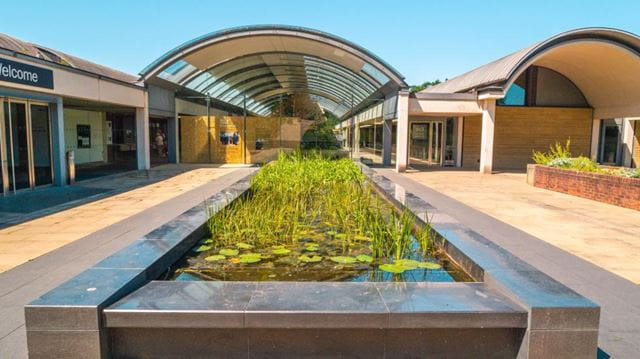
Inside the frozen vaults of this Noah’s Ark for plants, a plan was sown to ensure the future survival of plant life
The Millennium Seed Bank (MSB) at Wakehurst in Sussex is a global conservation project spearheaded by the Royal Botanic Gardens, Kew. The project’s mission is to safeguard the future of the world’s plants, banking them to conserve them for the future and giving a safe home to some of the world’s most threatened species.
The project has a network of seed banks all over the world, with the Wakehurst site in the UK being the largest ex situ plant conservation programme in the world. The project has been running since 2000 and has now become the world’s largest and most diverse seed bank with 2.4 billion seeds stored from over 40,000 species. The project aims to protect the genetic diversity of plants by collecting, drying, and storing their seeds, working with partner organisations from around the world to protect the planet’s most incredible plant life.
Kew's scientific mission to protect wild plant biodiversity

PWhen the clocks ticked over into the new millennium, it was fast becoming clear that we were running out of time – that climate change wasn’t a distant threat, that the world’s resources weren’t as infinite as we’d previously wanted to believe. Amid the celebrations, a dark question loomed like the inevitable hangover: if we carry on like this, what will the world be like in another 1,000 years? It was time to take action – not only for Great Britain, but for the entire planet.

As New Year’s resolutions go, the Millennium Seed Bank Project was mind-bendingly ambitious. A bid to create a ‘Noah’s Ark’ for plants, by collecting, preserving and storing seeds from all over the globe, it would transform Kew’s pioneering seed collection – founded in 1976 – into the world’s most extensive library of life. If conserved correctly, the seeds would remain viable for tens, hundreds or even thousands of years beyond their natural limits, allowing them to be reintroduced to wild habitats – an insurance policy against global warming and biodiversity loss.
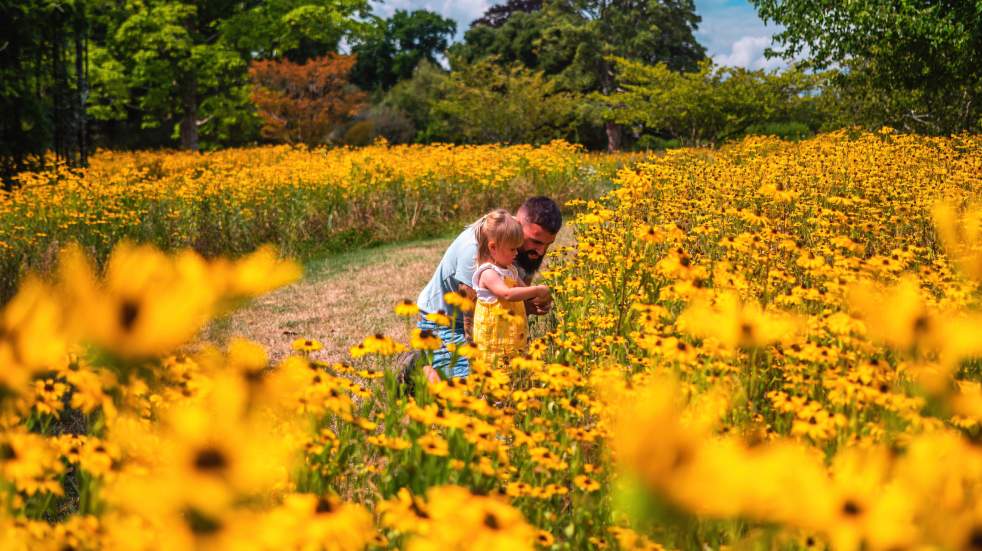
In November 2000, Prince Charles (Now King Charles III) opened the facility at Wakehurst, Kew’s wild botanic garden in Sussex, describing it as “a gold reserve”. Its potential was incredible, yet its scientists had already completed a monumental achievement: banking seeds from nearly all of the UK’s own native plants- some 1,400 species.
“The reason we did that,was so that when we came to launch the seed bank, we could then say to other countries – look, we’ve banked our flora, we want to help you bank yours.” explains Keith Manger, Millennium Seed Bank Manager.
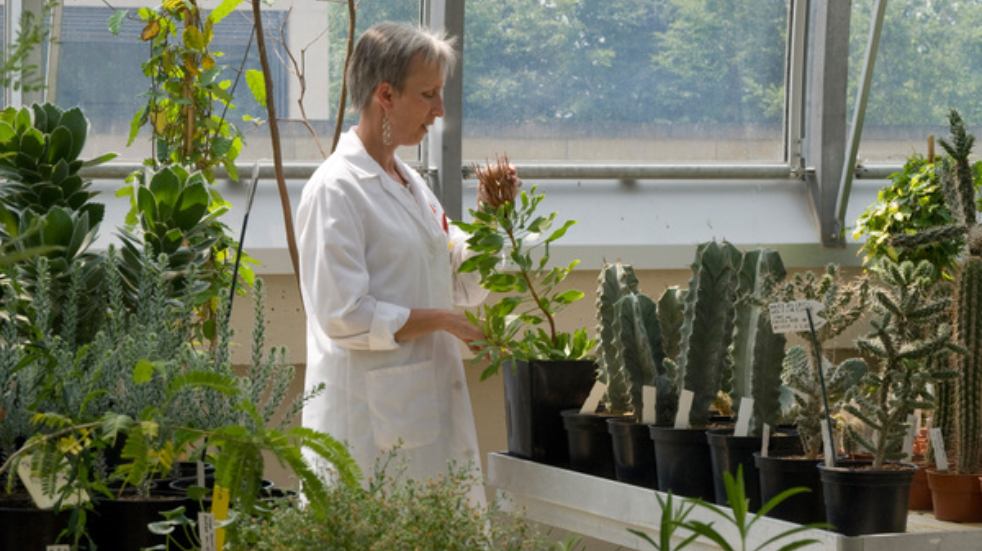
Today, more than two decades later, the collection contains over 2.4 billion individual seeds; 40,000 species have been gathered from 190 countries, making Wakehurst the most biodiverse place on the planet.
And it is all happening before our eyes: the facility is part of the wider Wakehurst estate, its low-rise, barrel-roofed labs looking bunker-esque amid the ancient yews and towering pines for which the gardens are famous.
Inside, the Surviving or Thriving exhibition reveals the technology and techniques at play, and traces the seeds’ journey from collection to cleaning, drying, X-ray and cryogenic safekeeping. Behind the exhibits, huge windows reveal the scientists at work, examining seeds under microscopes, logging new arrivals – from Mozambique, Peru, or Kyrgyzstan perhaps – or testing the moisture content of soon-to-be-frozen specimens. Tantalisingly, you can also peer into the entrance of the cryo-storage vault, which comprises six bombproof, radiation-proof, fireproof and flood-proof chambers.. “It’s designed to take the impact of a plane and bomb from above,” says Manger unflinchingly.
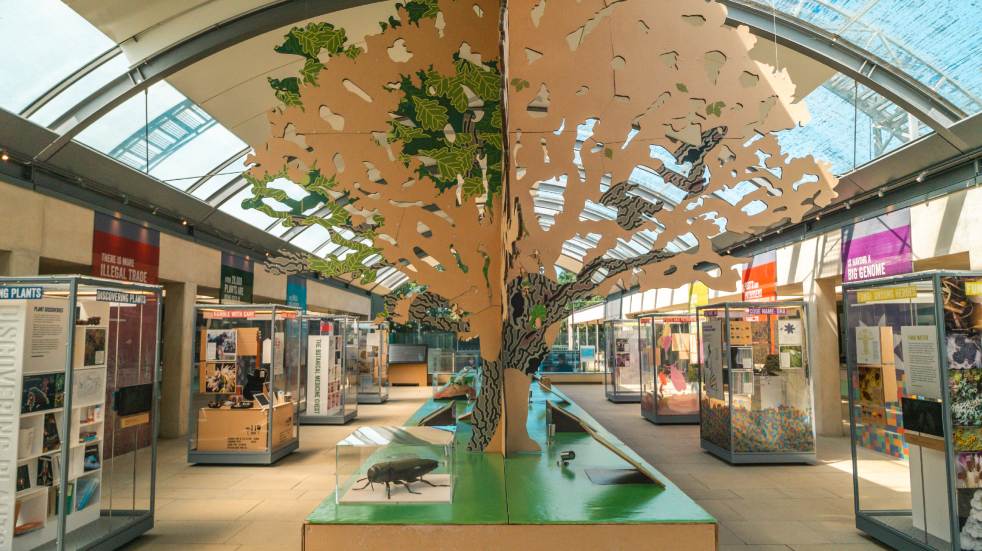
But perhaps most remarkable of all are the stories and photographs detailing the project’s vital conservation work so far – such as the reintroduction of endangered ‘shiny nematolepis’ shrubs after devastating forest fires in Australia, and the cultivation of 10,000 chalk grassland plants to rewild South Downs National Park. Suddenly, the future feels brighter. “The MSB is hope,” says Manger. “It’s hope personified.”
What to see and do
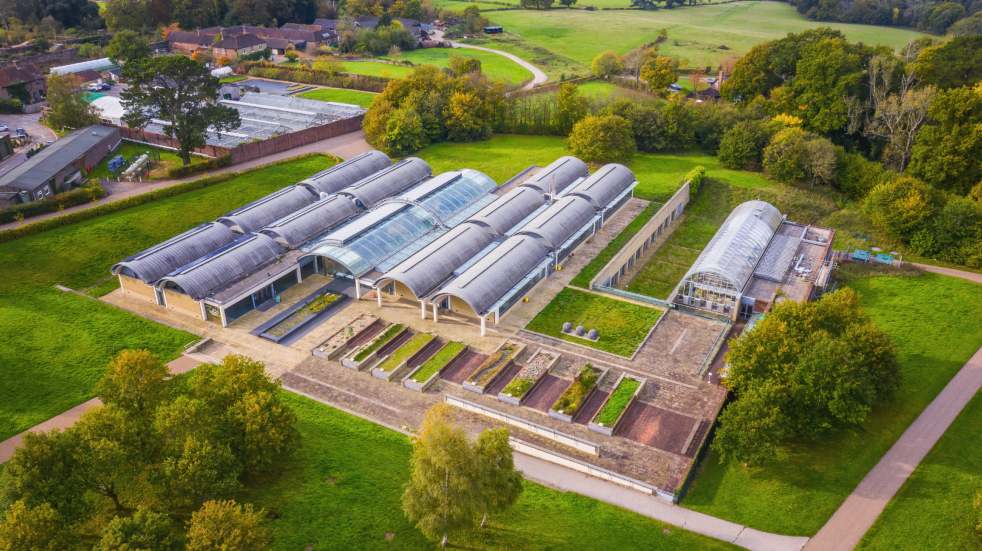
The Surviving or Thriving exhibition is located within the Millennium Seed Bank at Wakehurst. It’s suitable for all ages, and entry is included in your ticket to Wakehurst: £14.95 for adults, or get free unlimited access as a Boundless member. Tours are self-guided and take around 60 minutes. Wakehurst comprises over 500 acres of mature woodlands, landscaped gardens and wildlife-rich waterways, and there’s lots of things to do including willow weaving workshops, forest bathing and wildlife walks. Many of the paths are wheelchair accessible: guided tours are not necessary, but volunteer-led walks are offered daily at 11.30am, and also at 2pm from Tuesday to Thursday.

Wakehurst is located in the High Weald AONB: for walking and cycling routes, and trip-planning advice, see highweald.org. Other nearby attractions include the Medieval-style ruins and Grade II-listed garden of National Trust’s Nymans (tickets from £15; nationaltrust.org.uk/nymans), and Hever Castle, the 700-year-old childhood home of Anne Boleyn (tickets from £20; hevercastle.co.uk).
Where to eat and stay
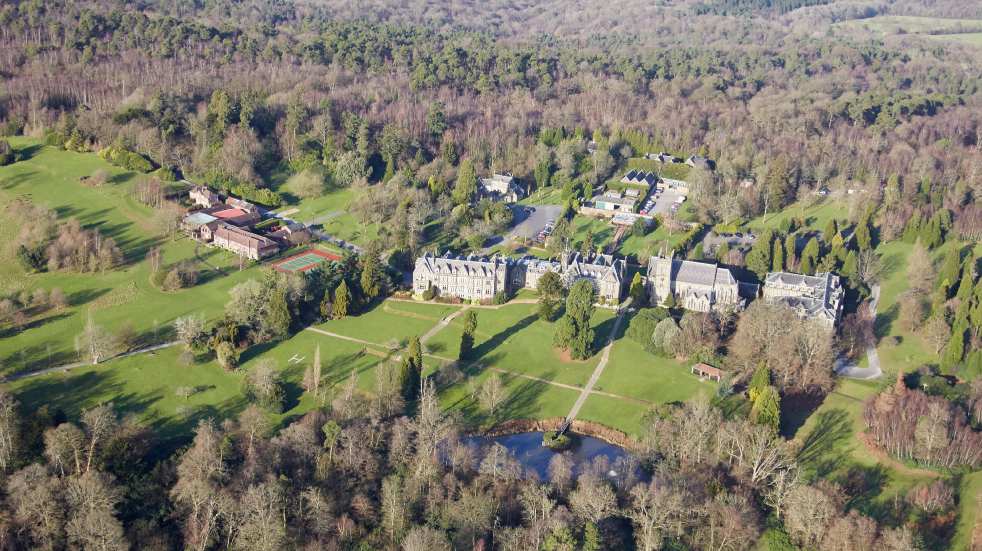
Wakehurst’s Seeds Café serves an excellent coffee and walnut cake, while the Stables Pantry and Kitchen – also on site – is open for brunch, lunch and light bites, with plentiful vegetarian choices. A 10-minute drive away in Haywards Heath, The Cowdray Arms champions local ingredients: think Newhaven-caught fish and chips, and Sussex beef brisket burgers (thecowdrayarms.co.uk).
There are many good accommodation options in the area, not least of which is Ashdown Park Hotel and Country Club – named after the ancient forest it calls home. Its splendid AA Rosette-winning restaurant, full-service spa and woodland golf course make it more than worthy of an indulgent weekend break (double rooms from £230 per night including breakfast; ashdownpark.com).
Unlimited access to Kew Gardens and Wakehurst
Don’t forget that as a Boundless member, you can enjoy free unlimited access to Kew Gardens and Wakehurst for you and up to five children per visit, and 50% off one additional adult entry per visit. boundless.co.uk/kew
Do more with Boundless
Working in or retired from the public sector or civil service? To benefit from amazing offers, along with dozens of other deals on holidays, days out, experiences, shopping and more, join Boundless today. To find out how, visit www.boundless.co.uk




